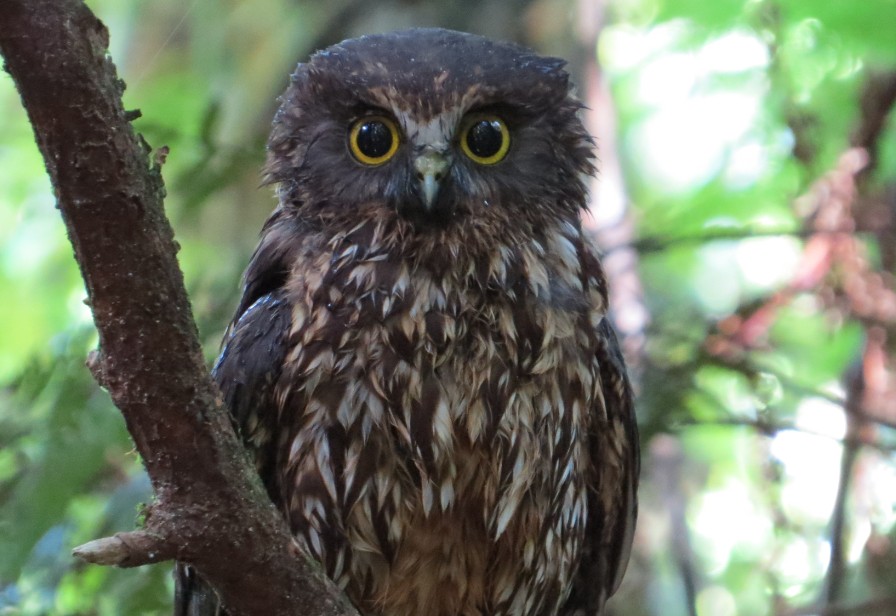It’s working – Taranaki community’s predator control is expanding at a rapid pace, removing rats, possums and stoats, disrupting the threats facing native wildlife and plants.

Morepork in Taranaki
Taranaki Regional Council Chair David MacLeod says he’s excited by the community’s commitment and progress a year since the region-wide project Towards Predator-Free Taranaki was announced on 30 May 2019. Rural andurban residents, iwi, community organisations and schools are uniting to remove rats, stoats and possums from urban, rural and conservation land.
Taranaki Regional Council monitoring data shows intensive predator control may already be making a difference – rats and possums in urban New Plymouth are decreasing, while the trapping network in rural and urban areas is expanding rapidly, Mr MacLeod says.
Monitoring, using rat footprint tracking and a possum bite-mark index, show catch rates have dropped; rats went from 33 per cent to 19 percent in the past year, while the urban New Plymouth possum index has fallen from 25.6 to 1.4 per cent in the past four years.
“This is amazing. It suggests the rapidly growing trapping network in urban New Plymouth backyards, parks and reserves is having an impact, supporting successful efforts removing predators on rural and conservation land,” Mr MacLeod says.
The project, led by Taranaki Regional Council, will cost $47 million in the first five years, with $11.7 million from the Government. Towards Predator-Free Taranaki is the biggest project of its kind in the country. Other highlights in the past year include:
- Eradicating all possums from Oakura is getting closer. Phenomenal support from Oākura urban and rural residents has seen 53 possums caught in town and 140 in rural Oākura in the past four months. It’s now critical residents report any suspected possums on 0800 736 222 or online at www.trc.govt.nz/possum(external link) to help catch every last one.
- New Plymouth school students are leading urban efforts, with 33 primary and secondary schools participating in urban predator control, analysing catches, checking traps on public land, making traps and selling traps to local residents as a fund-raiser. Many students are also using the biodiversity app iNaturalist; www.inaturalist.org/projects/towards-predator-free-taranaki-bioblitz-network(external link) helping monitor native wildlife and plants.
- The first North Island robin to be seen at Pukeiti in 112 years was spotted after intensive predator control in the area. Robin returned to Pukeiti, after being released following predator control on Egmont National Park by Taranaki Mounga Project – a conservation restoration project partnering with Towards Predator-Free Taranaki.
- New Plymouth rural landowners are starting to manage and maintain traps utilising a new wireless trapping network and self-resetting traps, helping catch and monitor mustelids (stoats, ferrets, weasels) on a large scale, across 14,000 hectares between Egmont national park and New Plymouth for the first time – supported by Manaaki Whenua Landcare Research and conservation technology company’s Goodnature and Econode.
The project has initially focused on New Plymouth district in the first year, before expanding around the mountain in the coming years, but the overwhelming demand by residents to get traps in backyards has, at times, stretched the supply of traps.